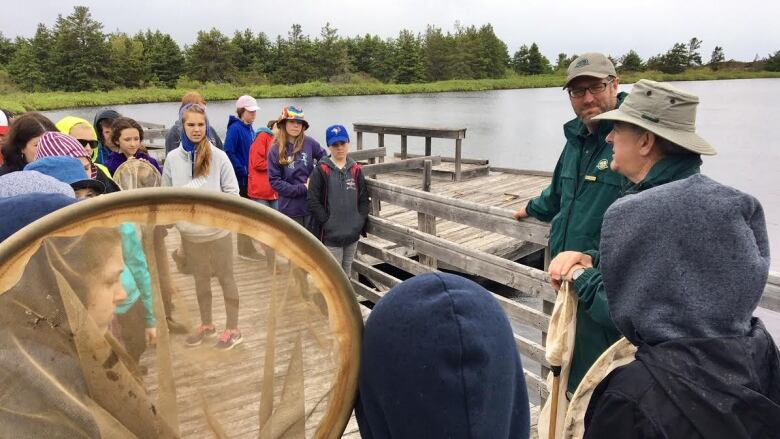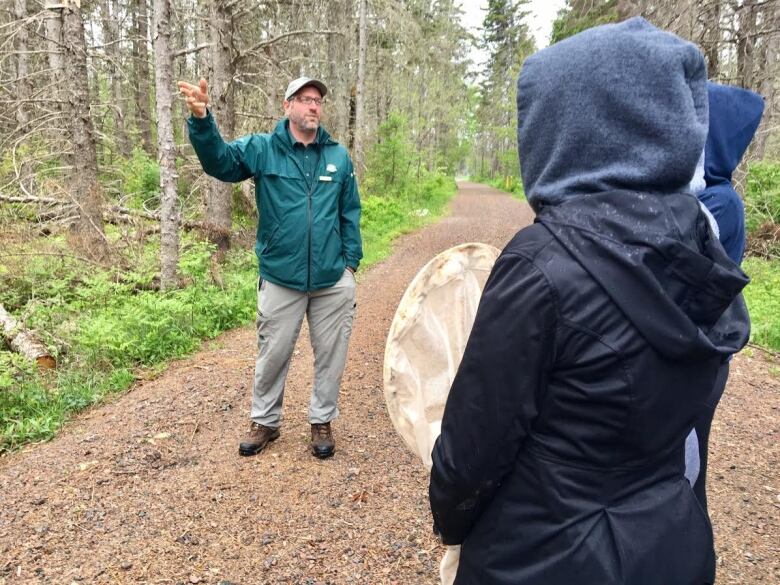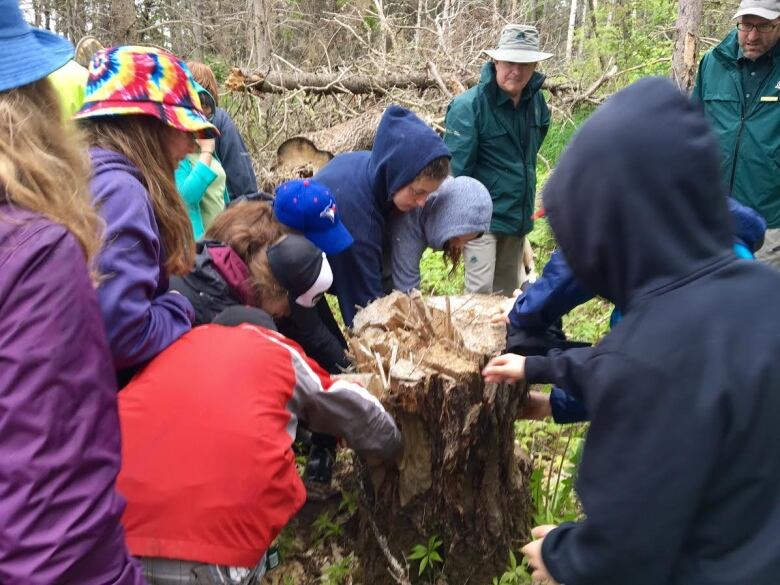'It's a treasure hunt':BioBlitz takes over national park
'Sometimes we find things that we don't know are here'

Grade7 students from Gulf Shore Consolidated had the unique opportunity to trade their books in for nets and go in search of dragonflies at theNational Park inDalvay.
The school trip was part ofBioBlitz, whereexperts and the public work together to identify as many species as possible in a specific area over a 24-hour period.
"It is a treasure hunt," said Paul Giroux, an Ecosystem Scientist with Parks Canada.
"It's important for people to know their neighbours, and some of the neighbours here are not humans," he said.
"They're plants, they're animals, and it's important for people to connect to nature to understand, you know, how the world works, why it's important to protect it, and the rolethat it plays, and having the opportunity to spend some time with an expert, you get an appreciation for how diverse it is."
'Helps verify what we think is here'
BioBlitz participants are taken to one of more than a dozen stations in the Brackley-Dalvay area of the P.E.I. National Park.
Giroux said it's a good way toconnect with nature.

"It helps to verify what we think is here, and sometimes we find things that we don't know are here," he said.
"It's a good time to pick up exotic or invading species, but it's also a good time to find rare and endangered or unique things, and visitors can be right there beside the experts when they find those things, so it's very interesting in that regard."
Experts and the public work together to locate, identify and document as many different organisms as they can.
'Using new technology'
"Our experts from botany, insects, amphibians, lichen, bats, owls, birds, as many different types of groups as we can," Giroux said.
"We're going to go out and build a big list over this 24-hour period. To try and find as many species as we can."
"We're using new technology this year with visitors using smartphones or digital cameras to take pictures of things that maybe they don't know what it is, and they can post it on an eye naturalist app that we're using and experts will look at those pictures and tell the person through the app in time what that species is."
At each station, there are interpretersand hands-on activities to help participants discover as many plants and animals that live in the four major ecosystems protected in P.E.I. National Park.
'See species they've never seen before'

"It might be the only time people get to see some of these species or to talk to experts about them, so it's a great opportunity for people to come out, meet an expert, maybe see a species they've never seen before or learn something about something they're really interested in."
MORE P.E.I. News ICanada funds program to teach kids where their food comes from
MORE P.E.I. News IYoung movers and shakers recognized by Fusion Charlottetown












_(720p).jpg)


 OFFICIAL HD MUSIC VIDEO.jpg)
.jpg)



























































































